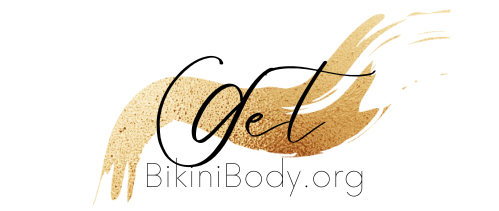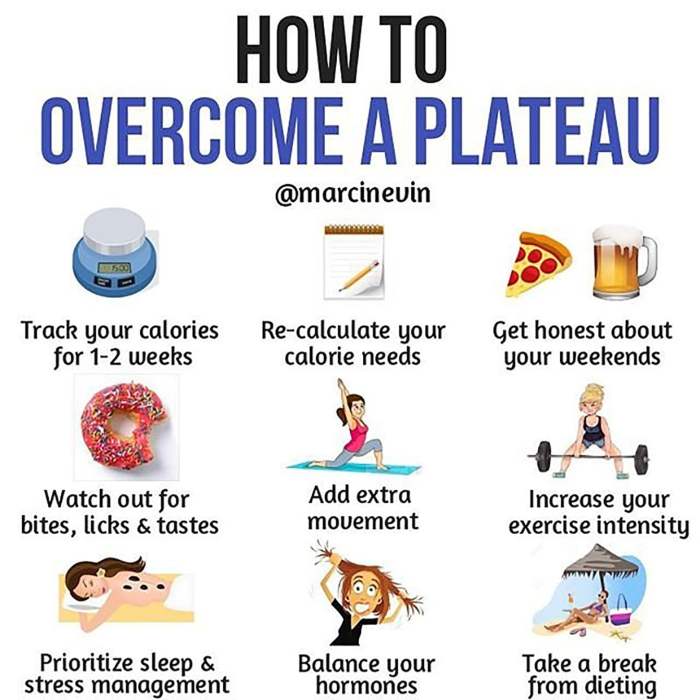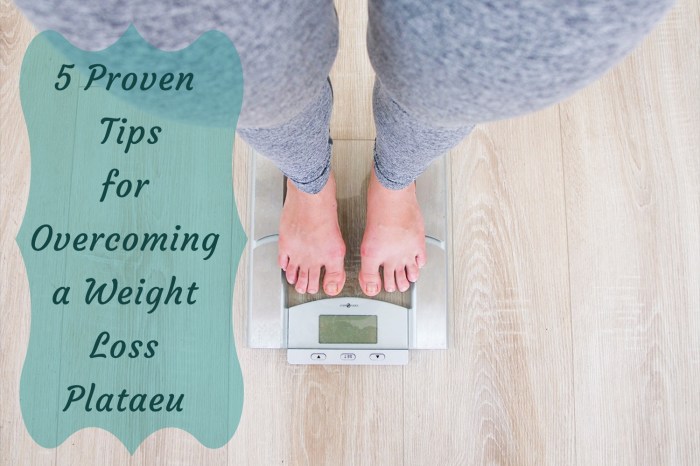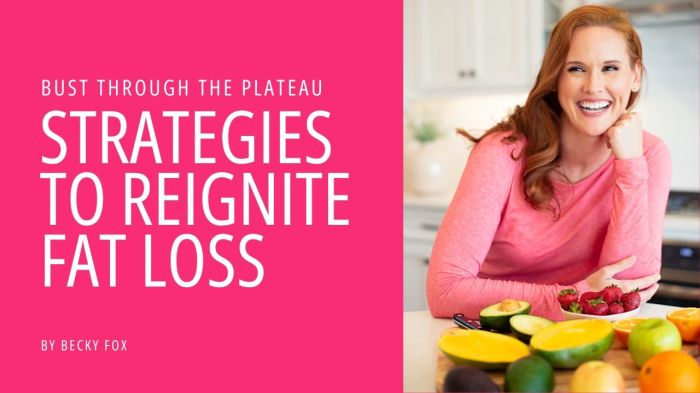Overcoming weight loss plateaus for women over 40 presents unique challenges and requires a tailored approach. This guide explores the hormonal, metabolic, and lifestyle factors that contribute to weight gain and offers practical strategies to break through plateaus and achieve lasting weight loss.
Join us as we delve into the science behind weight loss plateaus, uncover the specific needs of women over 40, and empower you with actionable tips to reach your weight loss goals.
Hormonal Changes and Metabolism
As we age, our bodies undergo various hormonal changes that can impact our weight. One significant change in women over 40 is a decline in estrogen levels. Estrogen helps regulate metabolism, and its decrease can lead to a slower metabolism, making it more challenging to lose weight.Additionally,
the production of progesterone, another hormone that plays a role in metabolism, also declines with age. This further contributes to a slower metabolism and can make it more difficult to burn calories.
Strategies to Boost Metabolism
To combat the effects of a slower metabolism, several strategies can be employed:
-
-*Regular Exercise
Engage in regular physical activity to increase calorie expenditure and boost metabolism.
-*Muscle Building
Incorporate resistance training into your routine to build muscle mass. Muscle tissue burns more calories than fat, even at rest.
-*Hydration
Drink plenty of water throughout the day, as it can help increase metabolism and reduce hunger.
-*Adequate Sleep
Aim for 7-9 hours of quality sleep each night, as sleep deprivation can disrupt hormones and slow down metabolism.
-*Protein Intake
Include lean protein in your diet, as it requires more energy to digest, thus boosting metabolism.
Nutrient Needs and Diet Adjustments
As women enter their 40s, their nutritional needs undergo significant changes. Understanding these changes and making appropriate dietary adjustments is crucial for successful weight loss. This section will provide a comprehensive overview of the nutrient needs of women over 40, offer guidance on adjusting calorie intake and macronutrient balance, and share tips for incorporating nutrient-rich foods into a weight loss plan.
Calorie Intake
With age, basal metabolic rate (BMR) naturally declines. This means that women over 40 need to consume fewer calories to maintain their weight. The recommended daily calorie intake for women over 40 varies depending on factors such as age, activity level, and weight loss goals.
However, a general guideline is to aim for a calorie deficit of 500-1000 calories per day to lose weight at a healthy rate.
Macronutrient Balance
Macronutrients, including carbohydrates, protein, and fat, play vital roles in weight management. As women over 40 age, their protein needs increase. This is because protein helps preserve muscle mass, which is essential for maintaining a healthy weight and preventing age-related muscle loss.
Aim for a protein intake of 1.2-1.6 grams per kilogram of body weight per day.
Carbohydrates provide energy for the body. However, choosing complex carbohydrates over simple carbohydrates is crucial. Complex carbohydrates, such as whole grains, fruits, and vegetables, release energy slowly and keep you feeling full for longer. Limit your intake of simple carbohydrates, such as sugary drinks, processed foods, and white bread.
Healthy fats are essential for hormone production, cell function, and satiety. Include healthy fats in your diet from sources such as olive oil, avocado, nuts, and seeds.
Incorporating Nutrient-Rich Foods
To support weight loss, focus on incorporating nutrient-rich foods into your diet. These foods are typically low in calories and high in fiber, vitamins, and minerals. Some nutrient-rich foods to include in your weight loss plan are:
- Fruits and vegetables: Aim for at least five servings of fruits and vegetables per day. These foods are low in calories and rich in vitamins, minerals, and antioxidants.
- Whole grains: Whole grains provide fiber, which helps you feel full and satisfied. Include whole grains in your diet through brown rice, quinoa, oatmeal, and whole-wheat bread.
- Lean protein: Lean protein sources, such as chicken, fish, beans, and tofu, help preserve muscle mass and promote satiety.
- Healthy fats: Include healthy fats in your diet from sources such as olive oil, avocado, nuts, and seeds.
Exercise Considerations
Exercise plays a pivotal role in weight loss, especially for women over 40. As we age, our metabolism slows down, and hormonal changes can make it harder to lose weight. Exercise helps boost metabolism, burn calories, and build muscle, which is essential for maintaining a healthy weight.
When it comes to exercise, consistency is key. Aim for at least 150 minutes of moderate-intensity exercise or 75 minutes of vigorous-intensity exercise per week. Choose activities that you enjoy, as you’re more likely to stick with them. Some effective options include brisk walking, jogging, swimming, cycling, and dancing.
Hey there, beautiful! If you’re a woman over 40 and struggling with weight loss plateaus, don’t despair. You’re not alone! Check out these Weight loss tips for women over 40 to get back on track and smash those plateaus. From adjusting your macros to incorporating strength training, these tips will help you overcome any obstacles and achieve your weight loss goals.
So, let’s get back to crushing it, ladies!
Resistance Training
Resistance training is crucial for building and maintaining muscle mass. As we age, we naturally lose muscle, which can lead to a decrease in metabolism. Resistance training helps counteract this by stimulating muscle growth and increasing strength. Incorporate exercises like weightlifting, bodyweight exercises, and resistance band exercises into your routine.
Cardiovascular Exercise
Cardiovascular exercise, also known as aerobic exercise, is important for burning calories and improving heart health. It involves activities that raise your heart rate, such as brisk walking, running, cycling, and swimming. Aim for at least 30 minutes of moderate-intensity cardiovascular exercise most days of the week.
Sleep and Stress Management
Sleep and stress play crucial roles in weight loss, particularly for women over 40. When you’re sleep-deprived or stressed, your body produces more of the stress hormone cortisol, which can lead to increased belly fat storage. Additionally, poor sleep can disrupt your metabolism and appetite regulation, making it harder to lose weight.
To improve your sleep quality, establish a regular sleep schedule, even on weekends. Aim for 7-9 hours of quality sleep each night. Create a relaxing bedtime routine that includes activities like taking a warm bath, reading a book, or listening to calming music.
Ensure your bedroom is dark, quiet, and cool for optimal sleep conditions.
Managing Stress
Managing stress is equally important for weight loss success. When you’re stressed, your body releases cortisol, which can increase appetite and cravings for unhealthy foods. Find healthy ways to manage stress, such as exercise, yoga, meditation, or spending time in nature.
Hitting a weight loss plateau can be frustrating, especially for women over 40. If you’re struggling to shed those extra pounds, it’s worth considering an Exercise plan for weight loss after 40 . These plans are tailored to the unique needs of women over 40 and can help you overcome plateaus and reach your weight loss goals.
Additionally, consider talking to a therapist or counselor if you’re struggling to manage stress on your own.
Sleep, Stress, and Hormonal Imbalances
Sleep and stress can also affect hormonal imbalances that can impact weight loss. For example, lack of sleep can disrupt the production of leptin and ghrelin, hormones that regulate appetite and metabolism. Similarly, stress can increase the production of cortisol, which can lead to insulin resistance and weight gain.
Hydration and Water Consumption
Proper hydration is crucial for overall health and weight loss. As we age, our bodies become less efficient at retaining water, making it even more important for women over 40 to stay adequately hydrated.
Water helps to flush out toxins, regulate body temperature, and transport nutrients to cells. It also helps to curb hunger and boost metabolism.
Daily Water Intake Recommendations
The recommended daily water intake for women over 40 is approximately 8-10 glasses (64-80 ounces) of water per day. This amount may vary depending on factors such as activity level, climate, and overall health.
Benefits of Drinking Water Before Meals
Drinking a glass of water before meals can help to fill you up and reduce your calorie intake. It can also help to improve digestion and reduce bloating.
Benefits of Drinking Water Throughout the Day
Drinking water throughout the day helps to keep you hydrated and energized. It can also help to improve your mood and cognitive function.
Meal Planning and Portion Control
Meal planning and portion control are crucial for successful weight loss. A balanced meal plan provides your body with the nutrients it needs while helping you manage your calorie intake. Here are some tips for creating healthy meal plans and controlling your portions:
Planning Your Meals
- Plan your meals ahead of time to avoid making unhealthy choices when you’re hungry.
- Include a variety of nutrient-rich foods from all food groups in your meals.
- Focus on whole, unprocessed foods like fruits, vegetables, lean protein, and whole grains.
- Cook more meals at home to control ingredients and portion sizes.
- Pack your lunches to avoid unhealthy temptations at work or school.
Portion Control
- Use smaller plates and bowls to reduce portion sizes.
- Measure and weigh your food to ensure you’re consuming appropriate amounts.
- Read food labels carefully to understand serving sizes and calorie content.
- Practice mindful eating by paying attention to your hunger cues and eating slowly.
- Avoid distractions while eating to prevent overeating.
Healthy Snacks and Meal Replacements
- Choose healthy snacks like fruits, vegetables, nuts, or yogurt to curb hunger between meals.
- Consider meal replacements like protein shakes or smoothies when you’re short on time or need a quick, nutritious option.
- Make sure meal replacements provide a balance of protein, carbohydrates, and healthy fats.
Common Obstacles and Challenges
Losing weight over the age of 40 can present unique challenges. Let’s delve into some common obstacles and strategies to overcome them.
Emotional Eating
Emotional eating, driven by stress, anxiety, or other emotions, can hinder weight loss. Recognize triggers and develop healthy coping mechanisms, such as exercise, journaling, or seeking support.
Lack of Motivation
Staying motivated is crucial. Set realistic goals, track progress, and celebrate successes. Surround yourself with supportive people or join a weight loss support group for encouragement.
Hormonal Fluctuations
Hormonal changes during menopause can impact metabolism and appetite. Consult a healthcare professional to discuss potential hormone replacement therapy or other interventions to mitigate these effects.
Success Stories
Here’s an inspiring testimonial from a woman who overcame these challenges:
“After years of emotional eating, I learned to manage my stress through exercise. With support from my therapist, I developed healthy coping mechanisms and finally broke the cycle.”
Sarah, age 45
Motivation and Mindset: Overcoming Weight Loss Plateaus For Women Over 40
Losing weight can be a challenging journey, especially for women over 40. However, maintaining motivation and a positive mindset is crucial for long-term success. Let’s explore the importance of these elements and provide tips to help you stay on track.
A positive mindset empowers you to focus on your goals, embrace setbacks as learning opportunities, and cultivate a healthy relationship with food and exercise. When you believe in yourself and your ability to succeed, you’re more likely to overcome challenges and achieve your weight loss aspirations.
Setting Realistic Goals
Setting realistic goals is essential for maintaining motivation. Avoid setting yourself up for failure by aiming for too much too soon. Start with small, achievable goals that you can gradually build upon. This will provide you with a sense of accomplishment and keep you motivated as you progress.
Remember, weight loss is a journey, not a destination. There will be ups and downs along the way. Embrace setbacks as opportunities for growth and learning. Don’t let them derail your progress. Stay focused on your long-term goals and keep moving forward.
Finding Support
Surrounding yourself with a supportive network can significantly boost your motivation. Join support groups, connect with friends and family who share your goals, or consider working with a registered dietitian or therapist. Sharing your experiences, challenges, and successes with others can provide encouragement and accountability.
Self-Care
Prioritizing self-care is essential for maintaining a positive mindset. Engage in activities that bring you joy and relaxation, such as spending time in nature, reading, or pursuing hobbies. Taking care of your mental and emotional well-being will help you stay motivated and resilient on your weight loss journey.
Remember, you are not alone in this. Many women over 40 have successfully lost weight and improved their health. With the right mindset, motivation, and support, you can achieve your goals too.
Hitting a weight loss plateau can be frustrating, but don’t give up! If you’re a woman over 40, check out these weight loss transformations for inspiration. You’ll find tips and strategies that can help you overcome your plateau and reach your goals.
Remember, it’s never too late to make a change and improve your health. So don’t give up, and keep working towards your weight loss goals.
Intermittent Fasting and Time-Restricted Eating
Intermittent fasting and time-restricted eating are eating patterns that involve alternating periods of eating and fasting. They can be effective for weight loss, as they can help to reduce calorie intake and improve insulin sensitivity. However, it’s important to note that these approaches may not be suitable for everyone, especially for women over 40.
Benefits of Intermittent Fasting and Time-Restricted Eating
- May help to reduce calorie intake and promote weight loss
- May improve insulin sensitivity and reduce the risk of type 2 diabetes
- May have anti-inflammatory effects
- May improve cognitive function
Risks of Intermittent Fasting and Time-Restricted Eating, Overcoming weight loss plateaus for women over 40
- May not be suitable for everyone, especially for women over 40
- May cause side effects such as hunger, fatigue, and headaches
- May lead to nutrient deficiencies if not done properly
- May interfere with sleep
How to Incorporate Intermittent Fasting or Time-Restricted Eating into a Weight Loss Plan
If you’re considering trying intermittent fasting or time-restricted eating, it’s important to talk to your doctor first. They can help you determine if these approaches are right for you and can provide guidance on how to do them safely and effectively.
There are many different ways to do intermittent fasting and time-restricted eating. Some popular methods include:
- 16/8 fasting: This involves fasting for 16 hours each day and eating within an 8-hour window.
- 5:2 fasting: This involves eating normally for 5 days of the week and restricting calories to 500-600 calories on the other 2 days.
- Time-restricted eating: This involves eating all of your meals within a specific window of time each day, such as 12pm-8pm.
It’s important to find a method that works for you and that you can stick to long-term. If you’re new to intermittent fasting or time-restricted eating, it’s best to start with a more moderate approach, such as 12-hour fasting or time-restricted eating for 12 hours each day.
Last Word
Remember, weight loss is a journey, not a destination. By understanding the challenges and implementing the strategies Artikeld in this guide, you can overcome plateaus, achieve your weight loss goals, and enjoy a healthier, more fulfilling life.
Embrace the journey, celebrate your progress, and never give up on your dreams of a healthier you.
Popular Questions
Why do women over 40 experience weight loss plateaus?
Hormonal changes, a slower metabolism, and lifestyle factors can contribute to weight loss plateaus in women over 40.
How can I boost my metabolism after 40?
Incorporate regular exercise, build muscle mass, and make dietary changes such as eating protein-rich foods and limiting processed foods.
What are the most important nutritional needs for women over 40?
Focus on consuming nutrient-rich foods, including fruits, vegetables, whole grains, and lean protein. Adequate protein intake is crucial for maintaining muscle mass.



